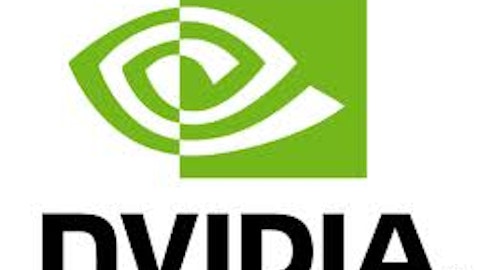In a reversal of fortunes, shares have tumbled over the past few months while shares have climbed. There seems to be much anticipation for BlackBerry’s new products and much contempt for Apple Inc. (NASDAQ:AAPL). In this article, I will explain why Apple is a smart buy at current price levels despite decreased iPhone shipments, while BlackBerry continues to be a speculative play at best. The emotions and news stories surrounding these two companies should be viewed with a cautious eye, while financial metrics should be the deciding factor for investors.
Companies that supply iPhone parts, including Sharp Corporation (NASDAQOTH: SHCAY) and Samsung, are under pressure from fewer orders and lower-than-expected sales for the iPhone 5, which have made Apple Inc. (NASDAQ:AAPL) cut production by about a third. Other companies that have been affected include AAC Technologies, which supplies speakers, Zhen Ding Technology Holdings, which makes the circuit boards, and Hon Hai precision Industry, which assembles the iPhones. Sources say that Sharp’s production of Apple panels in Japan has gone down from 100% of capacity to 40%. Sharp’s market for TV’s is not doing any better, and there are concerns regarding the material ability of the company to survive.

The Nikkei report also affected Apple Inc. (NASDAQ:AAPL) stock, and its price decline has left many investors concerned. The declines in stock prices of suppliers are much milder than Apple’s plunge, and range between 2% and 4%. Mito Securities analyst Keita Wakabayashi attempts to explain this, saying that the information is not entirely new to the market. According to Wakabayashi, “That’s why stocks aren’t plunging dramatically.”
The reduction in consumer demand has partly been attributed to the high-end prices for the latest iPhones, and Apple Inc. (NASDAQ:AAPL) ought to address the issue as soon as possible. Cheaper iPhones will also affect suppliers, since the cost of production has to be low enough for the phone maker to make a profit. Tong Yang Securities analyst Park Hyun highlighted the need for Apple to venture into emerging markets using cheaper smartphones. According to Hyun, “The center of growth in the market is moving toward the mid-end segment.”
Apple has for a long time benefited from the U.S. and European markets, where customers are known to queue for hours or even days once a new iPhone model is released. Today, many analysts feel that these markets are saturated, and they consequently bring up the need to exploit the demand for cheap smartphones in emerging markets. Former Apple Inc. (NASDAQ:AAPL) CEO John Sculley also joins the growing number of executives and investors who feel that Apple needs to change its strategy. According to Sculley, “Apple needs to adapt to a very different world.”
Apple will most likely use cheaper parts for low-cost phones. Current suppliers whose business has been on the decline could consider producing less expensive parts, since the demand for cheaper iPhones in markets in Asia and Africa may take a while to exhaust. It is not clear what Apple or its suppliers will decide to do, but all will obviously be looking out for their best interests. Some investors may take this opportunity to buy stocks while prices are low.
With a little spin these issues can be rephrased as opportunities. Supply chain issues mean that there is pent-up and unmet demand.
BlackBerry’s share price jumped to $17.90 on Jan. 23, its highest since 2011, after Chief Executive Officer Thorsten Heins reiterated that the company is considering strategic options, including licensing of software and selling its hardware unit.
Scotiabank raised its rating on blackBerry’s shares to sector outperform, saying the expected revenue from customers upgrading to Blackberry 10 alone could surpass analysts’ estimates. Scotiabank analyst Gus Papageorgiou estimates that BlackBerry will be able to sell 29 million Blackberry 10 units next year, while Macquarie Capital analyst Kevin Smithen is expecting that strategic alliances may be disclosed in the next several weeks.
Last May the company hired and RBC Capital Markets to help it evaluate options. Chief Executive Officer Thorsten Heins revealed that BlackBerry’s focus is on exploring software licensing deals or strategic partnerships, although he hasn’t ruled out selling the company as an option.
Canadian Industry Minister Christian Paradis said, “We hope to see companies like BlackBerry grow up organically to become global players.” Industry Canada would have to review and approve any sale if it conforms to the country’s laws on foreign take-over.
The company hopes the new BlackBerry 10 devices will help it win back lost market share from Apple’s iPhone and smartphones running Android software. BlackBerry is in no hurry to decide. Heins said, “First and foremost, it’s important to bring BlackBerry 10 successfully to market.”
That’s a big “if” in the increasingly competitive smartphone space.
| NOK | Nokia | NA | 0.4 | 1.46 | NA | 5.0% |
| BBRY | BlackBerry | NA | 0.73 | 0.97 | 11.14 | 5.0% |
| MSFT | Microsoft | 15.32 | 3.2 | 3.22 | 11.3 | 8.4% |
| GOOG | 23.22 | 4.94 | 3.45 | 18.56 | 14.7% | |
| AAPL | Apple | 9.97 | 2.51 | 3.49 | 9.43 | 13.8% |
Apple has the lowest price-to-earnings ratio and the second-highest projected earnings growth. This makes it much less speculative than BlackBerry or Nokia. It is also cheaper than Microsoft and Google.
At current price levels near $450 per share, Apple is an easy choice for investors.
The article iPhone Shipments Down: Should Investors Look Elsewhere? originally appeared on Fool.com and is written by Bill Edson.
Copyright © 1995 – 2013 The Motley Fool, LLC. All rights reserved. The Motley Fool has a disclosure policy.





